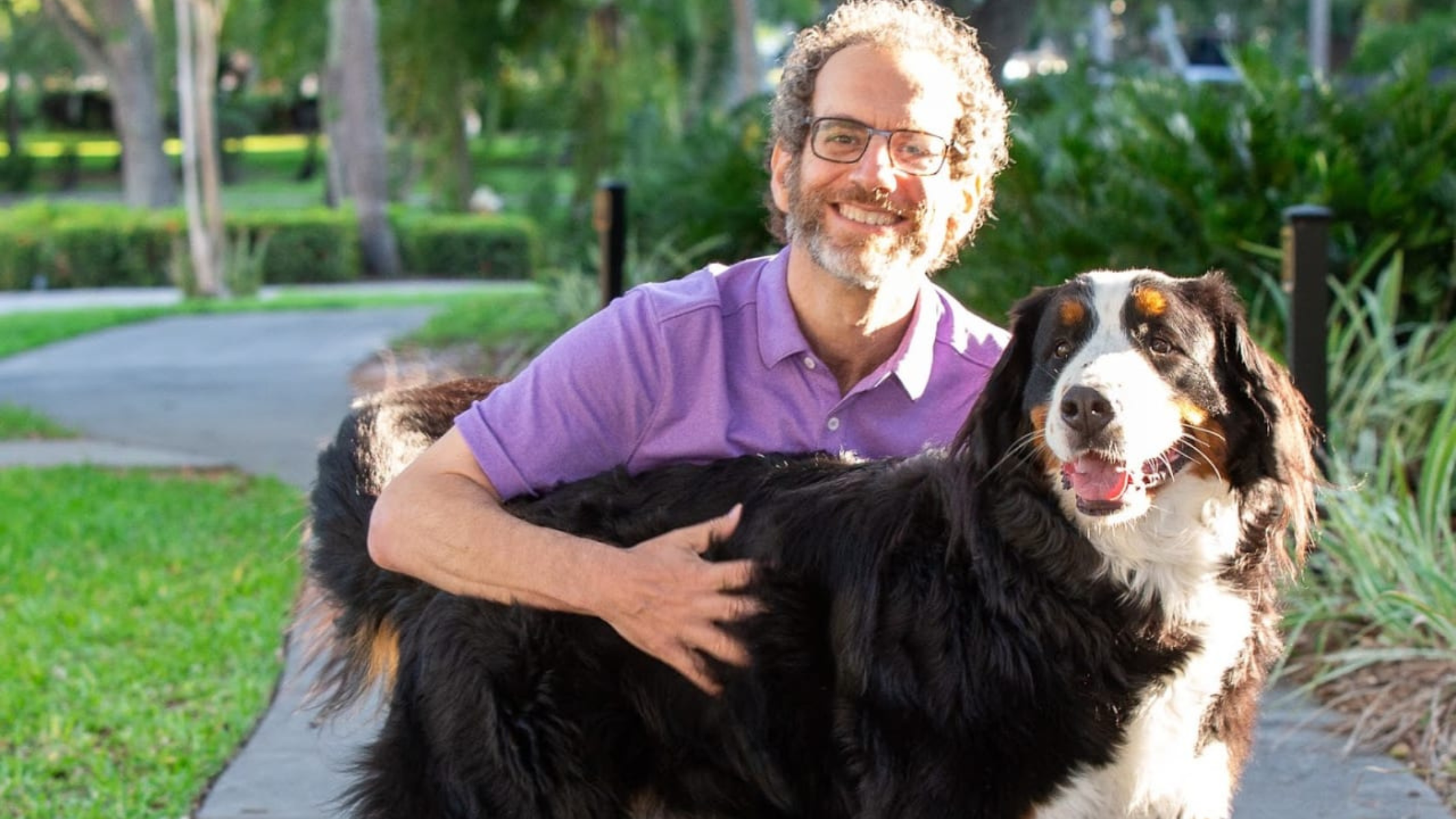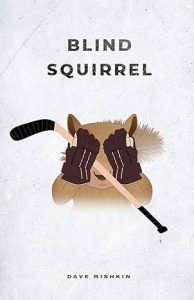
 Dave Mishkin has been the radio play-by-play broadcaster for the NHL’s Tampa Bay Lightning since 2002. His debut novel, “Blind Squirrel,” chronicles a minor league hockey player’s journey through mental health to recovery. Mishkin, a Yale graduate, plans to donate a portion of the proceeds from the sales of his book to Tampa Bay Thrives, a Tampa, FL.-based nonprofit and Mental Health America affiliate, first formed in 2019 with a vision of an emotionally healthy community where mental health is a priority and all thrive together.
Dave Mishkin has been the radio play-by-play broadcaster for the NHL’s Tampa Bay Lightning since 2002. His debut novel, “Blind Squirrel,” chronicles a minor league hockey player’s journey through mental health to recovery. Mishkin, a Yale graduate, plans to donate a portion of the proceeds from the sales of his book to Tampa Bay Thrives, a Tampa, FL.-based nonprofit and Mental Health America affiliate, first formed in 2019 with a vision of an emotionally healthy community where mental health is a priority and all thrive together.
We talk to Dave about the inspiration behind his book and the mental health theme that weaves throughout the story. (Edited for brevity)
Where did you get the inspiration for the book?
I had the idea in the late 2000s. I knew generally I wanted the arc of a minor league hockey player who had suffered a childhood trauma, who was carrying around this weight that manifests itself in his mental health. I really didn’t know how the story would unfold. I just started writing. I knew I wanted some sort of a recovery, but I didn’t know what that would look like…I started writing it but I didn’t know how to advance the story and I didn’t like what I had produced. It wasn’t poor writing. I had just reached a point where I got frustrated and put it away.
You picked it up in 2022…15 years later. Why?
The Lightning were in the first round of the playoffs, they were down in the series. We really hadn’t had a long off-season in a while and we were coming out of covid. I didn’t have anything planned in the off-season. I made a comment to my wife. ‘I wonder what I’m going to do with myself.’ She said: ‘Why don’t you go back to that book you started?’ When I started writing in the late 2000s the subject of mental health wasn’t discussed, especially mental health as it relates to athletes. Athletes are speaking about it much more than they did 15 or 20 years ago. In retrospect, it was good that (the book) came to be at this later point. Over this process of 5-6 weeks, I wrote the story in my head. By the time I was able to really sit down at the computer, I didn’t have the complete story written, but I basically had it done in my head. The writing took three and a half months. It just spilled out of me.
Talk about your mental health journey and how it shaped your book.
This is not a memoir, but I’m not immune to mental health issues. My protagonist’s issues are not my issues. But the idea that there is something about yourself you’re not happy with, or you hold yourself to a higher, more difficult standard than you hold other people, that allows a person to feel not great about themselves. I will say, what Noah (the protagonist) does with that emotion, how it affects his life…I based it in part on my own experiences. I gave Noah very different kinds of things to operate with. But the common thread is he’s not in a great brain space and he doesn’t really know what to do about it. That’s probably something I have experienced in my life, and I had to figure out a way to navigate through that or with that. I would say anxiety is the rowboat that I have been in. Anxiety is often accompanied by a lot of other stuff that I have not been affected by. In the book, Noah looks in the mirror and he sees himself in a grotesque way; he feels badly about himself. But he can’t look away. He gives this monster under his bed a name: Mindstorm.
So, you’ve gone through Mindstorms?
I have experienced that idea in your mind that starts racing and it leads your mind all over the map and I start beating myself up. It manifests itself as something completely unrelated (to the original thought.) That has kind of been my journey. I have a tendency to get worked up about one thing and it turns into Whac-A-Mole and comes up in other areas. I did therapy when I was younger. I do less therapy now. Occasionally I will go back to check under the hood; I need to go in for an oil change. I return to my baseline. A lot of people are dealing with a weight on their shoulders. That is not uncommon as we are hearing more people now talk about that. The arc, the mental health component of the arc that runs through the book, Noah at the end of the book is in a better place than Noah at the beginning of the book. He is able to lead a more complete, full life because he gained a new perspective, kind of how to navigate through his issues.
Your book features an athlete and it contains sports scenes. Was this book written for men? I hope it’s actually the opposite. I think it will connect with millions and millions of women who love to read, and who are drawn to these themes. My copy editor (female) loved the book. She didn’t know anything about sports. My editor was a woman and she connected with the story. I originally had too much hockey. I would write something and take out 60 percent of the hockey. It definitely has sports components in it that will appeal to men, but the mental health component I think appeals to everyone. Noah is not suicidal. He is not psychotic. Chapter 1 is called The Blinking Clock. Noah wakes up, he looks at his clock. It’s a blinking clock. It’s sensitive to the electric current. But it manages to keep the correct time. He’s repeatedly pressing it and fixing it. Eventually, he stops fixing it. Noah is like a blinking clock. He’s able to function. He’s just not operating properly.
Why did you choose to partner with Tampa Bay Thrives and dedicate a portion of the proceeds from your book sales to them?
It seemed like a good fit. It jives with my character. Noah probably would have benefited from what Tampa Bay Thrives is doing. They are the first step in your mental health journey to getting better.








